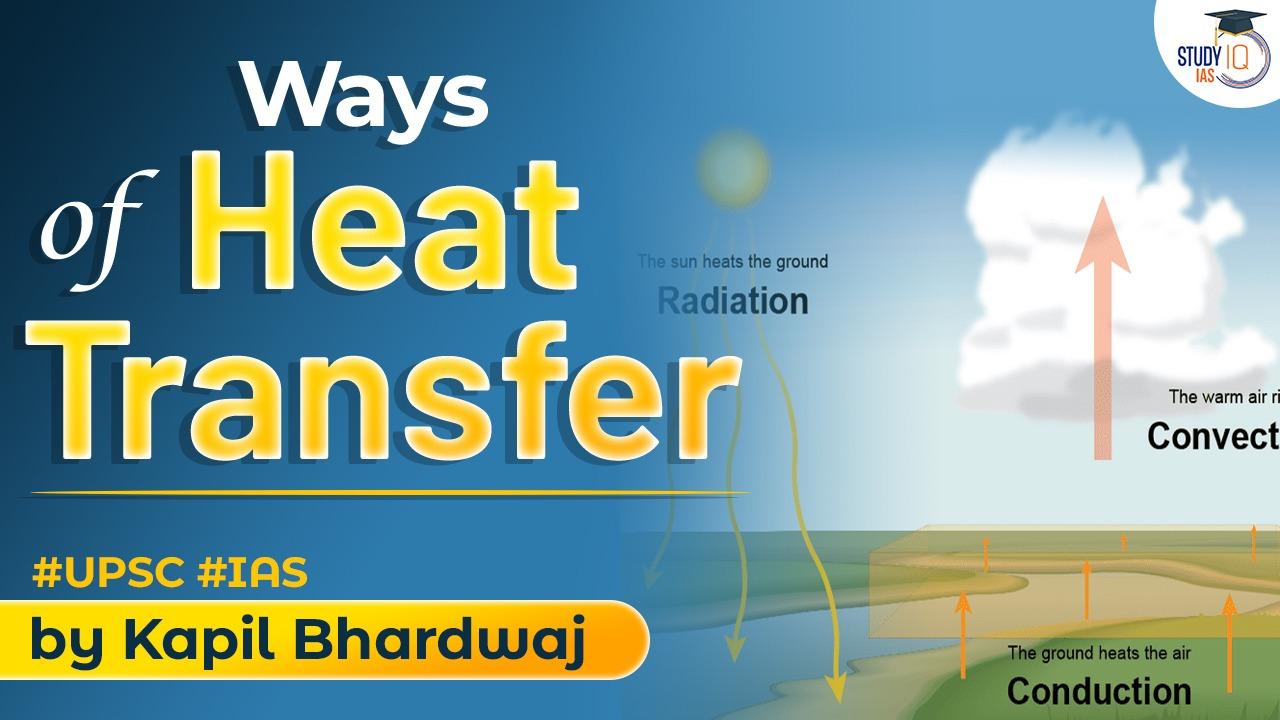Table of Contents
TEMPERATURE DISTRIBUTION ON EARTH
- The differential amount of sun’s energy is received by various latitudinal zones
- On earth the primary reason behind the occurrence of season is insolation.
- Insolation also effects wind systems, pressure systems, precipitation etc.


CONDUCTION
- The heat transfer through conduction happens due to molecular activity in a conducting medium.
- There is no actual movement of the medium itself.
- Generally, denser materials like iron, water are good conductors, and lighter medium like air are bad conductors of heat.

CONVECTION
- Convection is the transfer of heat energy by actual transfer of matter or substance from one place to another.
- E.g. heat transfer by convection cells in a boiling pot of water, atmosphere or oceans

HEAT FROM THE INTERIOR
- Some heat from within the earth’s interior is processed in transferred to the surface through volcanoes, springs, and geysers.
- However, the heat received from the interior at the ocean bottom is key to the survival of deep ocean lifeforms that depend on bacteria that grow near the volcanic vents.
- At ocean depths, as sunlight is non-existent, photosynthesis is impossible.
- The bacteria rely on chemosynthesis, a process in which microbes use chemicals in the vent fluid to produce energy

RADIATION
- Radiation doesn’t require a medium for heat transfer.
- Heat is transferred from one body to another without actual contact or movement in the medium. • E.g. Heat transfer from the sun to earth through space.
Insolation
- Insolation is the amount of sun’s energy received in the form of radiation by the earth.

- It is measured as the amount of solar energy received per square centimeter per minute.
- Earth intercepts less than a billionth of solar radiation.
- Earth receives sun’s radiation in the form of short waves which are electromagnetic.
- The earth absorbs short wave radiation during daytime and reflects the heat received into space as longwave radiation during night.

Download | Free PDF






















 WhatsApp
WhatsApp